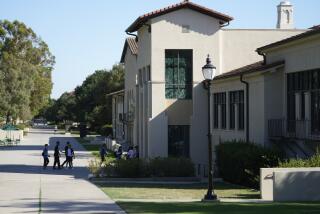Icahn slate is rejected by Lions Gate shareholders
After two years, three tender offers and three lawsuits, Carl Icahn failed in his attempt to get into the Lions Gate Entertainment Corp. boardroom.
A slate of five dissident shareholders nominated by the billionaire corporate raider, who is the largest shareholder in the Santa Monica film and television studio, was defeated at Lions Gate’s lightly attended annual meeting at the SLS Hotel in Beverly Hills on Tuesday.
Despite the nearly 33% stake he has amassed in the company, the vote leaves Icahn with no way to influence shareholders with his strong views that management should slash spending on overhead and film production.
“After all of the bashing and complaining, he’s made himself the largest shareholder of a company he thinks is mismanaged,” said James Marsh, an analyst at Piper Jaffray & Co. “It’s an awkward situation.”
All but one of 12 Lions Gate’s board members and about 50 other shareholders attended the meeting, where a large screen featured the Lions Gate logo and the slogan “Look what we’ve built.”
Daniel Ninivaggi, president of Icahn’s investment fund, attended on his boss’ behalf and said after the meeting that he believed his side would have won if not for a debt-for-equity transaction this summer that diluted Icahn’s stake and increased that of Mark Rachesky, the company’s second-largest shareholder and a supporter of management. Icahn filed lawsuits in New York and British Columbia, where Lions Gate is legally based, to block Rachesky from voting his new shares, but they have been unsuccessful so far.
“We believe the vote is a direct result of bad corporate governance,” Ninivaggi said.
Lions Gate said it didn’t yet have certified vote totals for each director, leaving it uncertain whether any of Icahn’s nominees would have won without the new shares issued to Rachesky.
The 2010 annual meeting was delayed from its usual date in September until Tuesday as Lions Gate and Icahn waged a legal battle. On-and-off talks on a settlement giving Icahn some representation on the board of directors proved unsuccessful.
Michael Burns, Lions Gate’s vice chairman, said Tuesday that Lions Gate remains open to giving Icahn some seats on the board in accordance with his stock holdings. The company had offered seats to Icahn but refused to grant his demand for specific powers on new board committees that would oversee spending.
“We’re not against the idea of Mr. Icahn having a board seat. We’re against a board member having superpowers,” he said.
Lions Gate has spent more than $17 million on legal costs fending off Icahn.
“Regardless of what Carl says, we’re cheap and we hate throwing money away for legal expenses and proxy fights,” Lions Gate Chief Executive Jon Feltheimer said.
Asked whether the two sides could finally agree to cease hostilities after the board vote Tuesday, Burns said, “Carl has got my home phone number.” He then asked Feltheimer whether the same was true for him: “Unfortunately,” Feltheimer replied.
Burns also said there were no short-term prospects for a merger between Lions Gate and Metro-Goldwyn-Mayer. Icahn, who owns a 15% stake in the bankrupt studio, temporarily teamed up with Feltheimer and Burns to try to bring the two studios together. But other debt owners rejected the deal, instead opting for a restructuring and a new executive team. “That ship has sailed,” Burns said of the potential for a merger in the near future.
Despite his failure to change Lions Gate’s board or management, Icahn did not give any indication Tuesday that he would end his activism. “We will continue to monitor the situation at Lions Gate and will aggressively take all actions necessary to protect our investment,” he said in a statement.
Ninivaggi said Icahn is still pursuing legal efforts to unwind the Rachesky transaction in Canada and New York, despite the initial losses. “And the next shareholder’s meeting,” he added, “is only 10 months away.”
Lions Gate stock fell 5% on Monday after Icahn announced that he would withdraw his $7.50-per-share tender offer after his defeat in New York Supreme Court last week. The stock fell an additional 6% Tuesday to $6.64. Burns and Feltheimer said they were not concerned with short-term stock fluctuations.
More to Read
The biggest entertainment stories
Get our big stories about Hollywood, film, television, music, arts, culture and more right in your inbox as soon as they publish.
You may occasionally receive promotional content from the Los Angeles Times.









